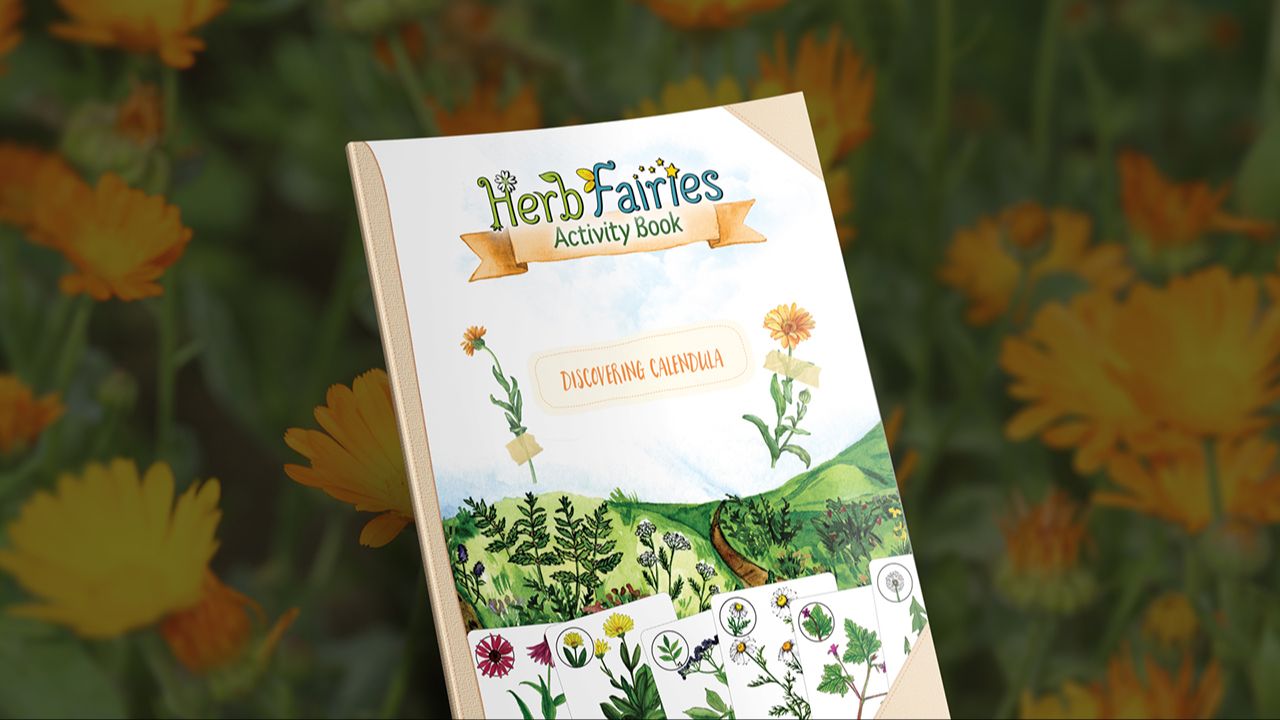
Lemon Balm Uses and Plant Monograph
Calming and delicious, lemon balm spreads its cheer just as it spreads its rhizomes … far and wide! Named for its lemony aroma/flavor and its ability to heal and soothe (the definition of balm), this unique mint family member is one of my most reached-for herbs.
Native to southern Europe, lemon balm’s genus Melissa comes to us from Greek, meaning “honey bee” or simply “honey.” In Greek mythology, Melissa was a nymph who shared the wisdom and honey of the bees. Lemon balm is a favorite plant of the bees. Not only does it produce lots of nectar, it’s also said to keep bees from swarming.
Pliny, Hippocrates, Galen, Culpepper, and Shakespeare all spoke of its attributes. There are also records of Thomas Jefferson growing lemon balm at Monticello. It was historically thought of as a panacea herb. Maude Grieve writes the following in her classic two-volume set, A Modern Herbal: “An essence of Balm, given in Canary wine every morning, will renew youth, strengthen the brain, relieve languishing nature and prevent baldness.” Saint Hildegard von Bingen summed this up when she wrote in 1100 CE, “Lemon balm contains within it the virtues of a dozen other plants.”
Lemon Balm Energetics
Like many mint family members, lemon balm’s energetics aren’t always so clear cut. Some see the aromatic qualities of lemon balm as being warming and in Ayurveda the sour taste is generally seen as warming. However, in western herbalism, lemon balm is often considered cooling. For me, lemon balm is cooling and slightly drying. It can be used for many hot conditions ranging from bug bites to hot fevers. It’s also lovely sipped on a hot summer’s day.

Lemon Balm Uses & Plant Profile Summary:
- Botanical Name: Melissa officinalis
- Other Common Names: balm, common balm, balm mint
- Family: Lamiaceae (mint)
- Parts Used: leaves
- Energetics: cooling, drying
- Taste: sour
- Plant Properties: aromatic, relaxing nervine, antiviral, relaxing diaphoretic, aromatic digestant, antispasmodic, antioxidant
- Plant Uses: anxiety, bug bites, colds and influenza, fever, nervousness, nervous digestion, stress, viral infections, radiation, heart disease, insomnia, depression
- Plant Preparations: tea, tincture, poultice, wash, food
Lemon Balm for Stress and Sleep
Lemon balm is deliciously calming. Classified as a relaxing nervine, it is called upon for many hypersensitive nervous system issues, ranging from stress to insomnia. I often like to combine it with chamomile (Matricaria chamomilla) and/or passionflower (Passiflora incarnata).
One study looked at the combined benefits of lemon balm and Nepeta menthoides (a catmint closely related to catnip). The study showed that people taking the herbal formula had decreased levels of insomnia as well as lowered levels of depression and anxiety.1
Lemon balm can be used as a gentle sedative to promote sleep and it’s often combined with other herbs for this purpose. In one clinical trial, a combination of valerian (Valeriana officinalis) and lemon balm was shown to assist in reducing symptoms of sleep disorders during menopause.2
Several clinical trials in the early 2000s looked at the benefits of lemon balm for people with dementia or Alzheimer’s disease. One trial showed that those taking lemon balm extract had less agitation than those taking the placebo.3 Another showed that those using lemon balm aromatherapy had improved quality of life, reducing the time they spent being socially withdrawn and increasing the time spent in constructive activities.4

Cognitive Benefits of Lemon Balm
In addition to soothing stress and promoting sleep, lemon balm has long been heralded as an herb to support cognitive health or, as Maude Grieve wrote, to strengthen the brain.
In one small 2018 pilot study, 44 healthy people with an average age of 61 were given either a combination of sage (Salvia officinalis), rosemary (Rosmarinus officinalis), and lemon balm or a placebo for two weeks, and then asked to perform word recall tests to measure memory enhancement. The study indicated that lemon balm was more effective than placebo and the researchers called for more studies to look at lemon balm’s effects on broader cognitive health.5 Another study showed that a formula of frankincense (Boswellia serrata) and lemon balm was effective for improving memory in older adults.6
Lemon balm has also been shown to have benefits for young, healthy adults. In one small trial, participants given lemon balm had better accuracy and attention and rated themselves as more calm.7
Lemon Balm’s Effects on the Thyroid and Heart
Heart palpitations, nervous tension, insomnia, and hyperactivity are all classic indications for lemon balm. These combined symptoms describe common symptoms of an overactive thyroid gland. The combination of lemon balm, bugleweed (Lycopus spp.), and motherwort (Leonurus cardiaca) is a classic western formula for a hyperactive thyroid.
Perhaps because lemon balm is used for people with a hyperactive thyroid, it’s often avoided for people with an underactive or hypothyroid gland. I’ve repeatedly asked clinical herbalists about this and have yet to find any modern clinical evidence for avoiding lemon balm in hypothyroid. In fact, several herbalists reported using lemon balm with people who had underactive thyroid glands and it did not change their thyroid blood tests. However, some caution may be warranted. If you have an underactive thyroid, avoid consuming this plant in excess (e.g., in large dosages or daily for extended lengths of time).
Lemon balm can protect the heart in numerous ways. It modulates inflammation (a major cause of heart disease) and has been shown to reduce harmful lipid levels in people diagnosed with type 2 diabetes.89 A clinical trial showed that lemon balm “is safe and effective in improvement of lipid profile, glycemic control, and reduction of inflammation” in patients with type 2 diabetes.10 One study has shown significant benefit from lemon balm for decreasing benign heart palpitations.11
Lemon balm has antiviral qualities that can be of benefit in numerous ways.
It’s a lovely soothing herb for upper respiratory infections. While acting as an antiviral, lemon balm can work as a relaxing diaphoretic to support the fever process and can calm the irritation and agitation that often accompanies a fever.
Several clinical trials have studied lemon balm’s ability to address outbreaks of herpes simplex, the virus that causes cold sores on the lips and genitals. One in vitro study looked at the effect lemon balm may have on drug-resistant strains of herpes simplex virus and reported that the “penetration of herpes viruses into cells was inhibited by Melissa extract at 80% and 96% for drug-sensitive and drug-resistant viruses, respectively.”12
An older study (1999) found that lemon balm cream applied to genital herpes healed the sores faster than placebo and relieved many of the uncomfortable symptoms.13 With this promising research, it would be great to see new and larger studies performed.
Herbalist Karta Purkh Singh Khalsa recommends lemon balm applied externally to eruptions of chicken pox (Herpes varicella-zoster), a virus closely related to herpes simplex.14
Lemon Balm for Relieving Pain and Aiding Poor Digestion
As a mild antispasmodic, lemon balm can help relieve tension headaches and other mild pain due to muscle tension. As an aromatic and carminative herb, it can relieve stagnant digestion, ease abdominal cramping, and promote healthy digestion. It’s a wonderful cup of tea to enjoy after meals.
Lemon balm can also be used to relieve the pain associated with menstrual cramping. One clinical trial found that young women taking 1200 mg of lemon balm daily had significantly fewer premenstrual syndrome (PMS) symptoms than those taking placebo.15 Another study showed that young women taking 330 mg of lemon balm three times daily at the beginning of their period had significantly less pain during menstruation than those taking placebo.16

Lemon Balm’s Benefits for Children
Many years ago I was out hiking in an old-growth forest with a group of people in the Pacific Northwest. We were following an overgrown trail covered with giant ferns and other undergrowth. While enjoying the giant trees towering above us, someone inadvertently stepped on a wasps’ nest. We were quickly surrounded by these powerful stinging insects and I escaped with a handful of nasty stings. Looking around for plantain, I soon found lemon balm instead. I chewed this up, applied it to the stings, and watched in amazement as the pain and swelling was greatly reduced.
Little did I know then that lemon balm has a long history of use for topical relief of bites and stings. Dioscorides (40-90 CE) wrote in his De Materia Medica, “A decoction of [lemon balm] leaves is good for those touched by scorpions, or bitten by harvest spiders or dogs.”
Since that day on the trail, I’ve used it numerous times to reduce the pain and discomfort for children who’ve been stung by bees or other insects. It works wonderfully!
Lemon balm tastes delicious and is effective for adults and children alike. Its lovely taste makes it a favorite herb for kids.
Lemon balm has even been used for children who are teething to soothe and calm this sometimes painful process. I like to combine it with chamomile (Matricaria chamomilla).
One study showed that a combination of lemon balm, chamomile, and probiotics taken for a month was more effective than the pharmaceutical simethicone for reducing the crying times of children diagnosed with colic.17
A combination of lemon balm and valerian (Valeriana officinalis) was shown to benefit children who suffered from restlessness and dyssomnia (irregular sleep patterns).18

Lemon Balm Protects Against Radiation
Radiation exposure from x-rays can cause DNA damage and induce oxidative stress. Because the damage is cumulative, this is especially problematic for people regularly exposed to x-rays. In one study, 55 radiology staff members were asked to drink lemon balm tea twice a day for 30 days. Oxidative stress markers were recorded before they began drinking the tea and again after the 30 days. Researchers recorded numerous improvements in oxidative stress markers, including a “marked reduction in plasma DNA damage.”19
Ultraviolet (UV) radiation is one of the leading causes of skin cancer and photoaging (changes to the skin induced by chronic exposure to ultraviolet/UV sunlight). One in vitro study showed many benefits from lemon balm for protecting the skin, including a decrease in UVB-induced oxidative stress production and a reduction in UV-induced DNA damage.20
Possible Benefits of Lemon Balm Against Various Cancers
Numerous in vitro tests have shown positive results when assessing lemon balm’s effects against certain cancer lines, including lung, colon and breast cancers.21222324 It’s important to note that, as promising as these studies are, more research is needed to assess the effectiveness in actual cancer patients.
Plant Preparations
Lemon balm can be prepared in numerous ways.
One of the simplest ways is to enjoy it as a delicious tea. It can be used both dried and fresh. I like adding fresh lemon balm to cool water, where it imparts its flavor after as little as 30 minutes to make a refreshing summer drink.
Many herbalists prefer to tincture lemon balm when fresh. It can also be made into an herbal infused vinegar and oil. The oil can be a base for lip balms and creams to protect the skin or to heal and prevent herpes sores.
Fresh lemon balm infused into honey is a special treat.
An astringent and protective facial toner can be made by infusing the fresh plant in commercial witch hazel (Hamamelis spp.) extract.
Teething youngsters may like to gnaw on a washcloth that has been soaked in lemon balm tea. Children and adults will love lemon balm popsicles.
Don’t forget to use lemon balm in the kitchen! It goes well with meats, fish, and vegetables, in sauces, sprinkled in salads, added to fruit salads, or made into an herbal butter.
You can even use this plant as part of a potpourri.
Lemon balm is distilled into an essential oil but is quite expensive. It can also be readily found as a hydrosol.
Dosage Suggestions
- Tea: 1 teaspoon to 1 ounce of dried herb made into tea per day
- Tincture (fresh herb): 1:2, 45% alcohol, 3-5 mL, 3 to 5 times per day
Special Considerations
There is some concern that lemon balm may inhibit thyroid function, although this does remain controversial. If you have an underactive thyroid, avoid consuming this plant in excess without first speaking to an herbal practitioner.









